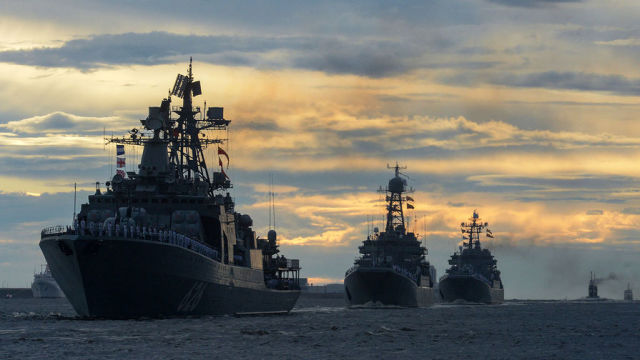The Baltic fleet is forming a new division in response to the build-up of NATO troops
Moscow will respond to NATO actions on the border with the Kaliningrad region, the Russian military warns. The Russian Federation pays attention to the strengthening of the military-political bloc's presence in this region. Experts and the media have repeatedly predicted a possible conflict in this region.
The leadership of the Russian Armed forces is taking measures in response to the build-up of forces of the North Atlantic Alliance on the border with the Kaliningrad region, said the commander of the Baltic fleet, Admiral Alexander Nosatov.
"In response to this threat, the leadership of the Armed forces is forced to take retaliatory measures. One of them was the formation of a full-fledged motorized rifle division, which became part of the army corps of the Baltic fleet," Nosatov told the Krasnaya Zvezda newspaper.
The fleet commander explained this strengthening primarily by the build-up of NATO forces in the immediate vicinity of the land borders of the Kaliningrad region. He said that one armored unit, several multinational battalion-tactical groups, other shock units and units of the North Atlantic Alliance troops were pulled to the borders.
In the middle of last month, the Vice-President Of the Academy of geopolitical problems, Colonel Vladimir Anokhin, told Izvestia that in the event of aggression by the military-political bloc in the Kaliningrad region, Russia would "turn off" enemy control systems in Poland, the Baltic States and over the Baltic sea.
"Electronic warfare means will protect a large area and, in addition, will operate deep into the territory of our opponents," the expert said.
In late October, a senior researcher at the Jamestown Foundation (USA), Dr. Richard hooker, said that a potential military conflict between Russia and NATO countries in the Baltic States will lead primarily to the loss of the Kaliningrad region.
According to the author, at the beginning of the military conflict, Moscow will try to isolate Lithuania, Latvia and Estonia from the sea and land, and will also seek to protect the sea approaches to St. Petersburg. At the same time, the most convenient land route to the Kaliningrad region, according to him, is through Belarus and Poland.
Recognizing the great strength of the Russian ground forces, the author pointed to its lagging behind the countries of the North Atlantic Alliance in the field of military aviation. At the same time, due to its own developed means of air and missile defense (air defense and missile defense) and the insufficient number of aircraft of the Alliance countries on combat duty in the region, as the expert stressed, Moscow will be able to provide very reliable protection of the Kaliningrad region from enemy attacks at the beginning of the campaign.
But in the end, Russia, according to the author's forecasts, will not withstand the onslaught of the enemy and will lose the exclave, primarily due to the build-up of US and Polish ground military groups in the region. The expert gave NATO forces about two weeks to break through the air defense of the Kaliningrad region. Another two weeks, in his opinion, will be required to hold the captured positions until additional support arrives.
The author assigned a smaller role to the Navy compared to aviation and ground forces. According to the expert, the fleet of the military-political bloc in the Baltic region outnumbers the Russian one, but in reality it faces problems in maintenance. At the onset of the war, according to him, he will be forced to deal with the "Russian mines" rockets.
According to the author, after the loss of the Kaliningrad region, Moscow will begin to threaten NATO with nuclear weapons. He noted that the situation will not continue until such weapons are actually used, and the end of the conflict under certain conditions may entail "face-saving measures" - " easing of sanctions, the return of [Russia] demilitarized Kaliningrad, the possible inclusion of Belarus in the Russian Federation, or [some] concessions to Russian ethnic minorities."
Kristina Sizova


